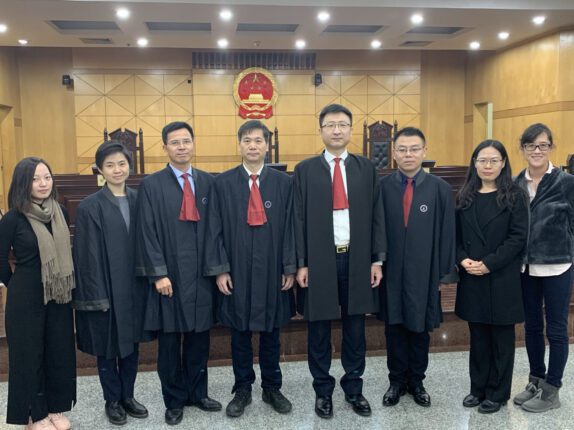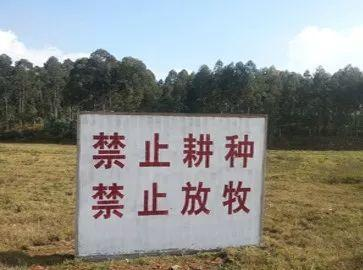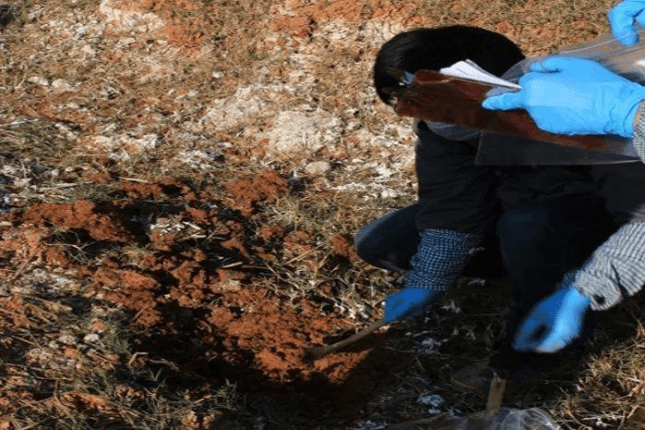-
Who Should Pay for Soil Contamination in China?
On April 18, 2016, I was on the train with my Friends of Nature (FON) colleagues for a work trip when a shocking piece of news erupted on social media: hundreds of students in Jiangsu Province fell ill after moving into a newly built middle school. Reported symptoms included itchy skin with rashes and lesions, coughing, and a decline in white blood cell count. Students and parents later learned that their beautiful new school was built next to a contaminated site, previously home to three chemical manufacturing facilities, the largest of which had produced pesticides for decades. After these companies closed, a company contracted by the local government to clean up the site failed to properly collect and dispose of toxins in the soil. These toxins leaked into the air and sickened the students.
This sad news spurred me and my colleagues on FON’s legal team to immediate action. We initiated a series of government information disclosure applications and the local government provided us extensive documentation. We quickly brought a public interest case to court. In 2014 when the Environmental Protection Law of China was amended, FON was deemed a qualified NGO to bring Environmental Public Interest Litigation (EPIL). While we did not win, this case was pivotal in highlighting the importance of including the Polluter Pays Principle in China’s Law on Prevention and Control of Soil Contamination, enacted in 2019.
Motivations to Bring Lawsuit
Bringing an EPIL in China is a time-consuming and challenging process for any NGO, especially for such a complicated case. In the absence of specific soil contamination laws at the time, we used other environmental protection laws as the legal foundation. Additionally, the multiple parties involved during the long history of contamination made this case even more challenging.
Soil contamination is extensive in China: 16.1% of the samples in a 2014 China Soil Survey were contaminated. These results illustrate how China’s environmental governance has long prioritized economic development over environmental protection. Additionally, since soil contamination usually builds up over years and is hard to detect, it is difficult for affected communities to be aware of the risks, and for the government to tackle the problem.
We knew our chances of winning were slim, but we decided to push ahead for three reasons. First, impactful public interest lawsuits like ours could drive solutions to similar soil contamination cases and encourage businesses to adopt preventive measures. Second, we were motivated to bring the case to eliminate further threats to public health from soil pollution. Third, bringing the case to court could help develop better soil protection mechanisms. The new EPIL system, provided by the amended Environmental Protection Law, opened doors for NGOs to impact legislation. We believed our case could help highlight gaps in soil protection legislation and lead to improvements.
Contaminated Soil. Farming and Grazing are Prohibited.
Sampling the Contaminated Soil.
The Litigation Challenges
11 days after the initial story broke, FON launched our environmental public interest litigation (EPIL) in the Changzhou Intermediate People’s Court against the three chemical companies responsible for the long-term soil and groundwater pollution in the area. The China Green Development and Biodiversity Conservation Foundation joined as a second NGO plaintiff soon after. Although the local government was responsible for managing the land after the three companies relocated in 2011, we sued the companies as they were the responsible polluters and NGOs cannot sue the government under China’s EPIL system.
After nearly 9 months of heated court proceedings, on the last working day before the Chinese Lunar New Year holiday, the court announced the ruling against all of the plaintiff claims and ordered the two plaintiff NGOs to pay the case acceptance fee of 1.89 million Yuan (approximately 270,000 USD), based on the requested restoration and remediation cost amount. This caused a public uproar as it was impossible for any NGO in China to pay such a large litigation fee for a public interest lawsuit.
I was also deeply concerned about the limited time for us to appeal: the 7-day Chinese New Year holiday would take up half of the 15 calendar days before the statutory deadline for filing the appeal. My colleagues and I would be sacrificing quality time with family during the country’s biggest holiday. With little time to spare, we turned in the appeal to the Jiangsu Provincial High Court within the 15-day appeal period.
On March 1, 2017, Jiangsu Provincial High Court accepted the appeal, attracting national media and public attention. After 21 months of hearings, the appellate court reversed the Intermediate Court’s decision. The three chemical companies were required to publicly apologize on national media, pay 230,000 Chinese Yuan (approximately 30,000 USD) to each plaintiff NGO for attorney fees and travel expenses, and bear the case acceptance fee.
The court ruled the three chemical companies should bear the restoration responsibility according to the “Polluter Pays Principle.” However, the appellate High Court also decided the NGOs could not demand defendants cover the costs of environmental cleanup and restoration because the local government had already paid a third-party company to do the cleanup. The court also explained that the future clean-up and remediation fee couldn’t be sentenced to the polluters as the fee couldn’t be identified at that time.
Our Loss Became a Big Win
FON initiated this lawsuit to push polluters to pay for the damages caused by their polluting activities. The ultimate result was a limited success. Our team was dissatisfied how the court deemed itself constrained by vagueness of the applicable legal provisions from drawing the common-sense conclusion that parties who contaminate soil should be responsible for paying the costs of cleaning up their mess. Nonetheless, we persisted and our later legal advocacy work bore fruit.
Combining our research from this case and other similar cases, we presented our legislative proposals, focusing on polluter accountability, to Chinese lawmakers. China’s Law on Prevention and Control of Soil Contamination was passed in 2018 and became effective on January 1, 2019. The law indicates that polluters should bear legal liability for any soil contamination resulting from their activities.
Through a combination of litigation and legislative work, we were able to contribute to the transformation of the less than ideal results of the Changzhou soil contamination case into a big win for development of environmental protection legislation in China. The legislation we helped shape stands as a testament to the impact of NGO efforts that can transform the landscape of China’s environmental governance.
Feng Ge is a public interest environmental lawyer in China and is currently a visiting scholar at Vermont Law and Graduate School. Previously, she was the Director of the Legal Department of Friends of Nature, and led a series of impactful public interest litigation in China, including the one described in this article.
Xiaoyu Zhang is the Assistant Professor and Director of the Master of Legal Studies Program at Vermont Law and Graduate School (VLGS). She has been actively promoting the collaboration between VLGS and other Chinese partners in environmental public interest litigation.
Sources: americanbar.org, Resoilfoundation.org, thepaper.cn
Header Photo Credit: Courtesy of Feng Ge
All Other Photo Credit: Courtesy of Feng Ge
 A Publication of the Stimson Center.
A Publication of the Stimson Center.






